Kōichi Katsuragi
Nacimiento : 1890-03-12, Hakodate, Hokkaido, Japan
Muerte : 1964-09-06
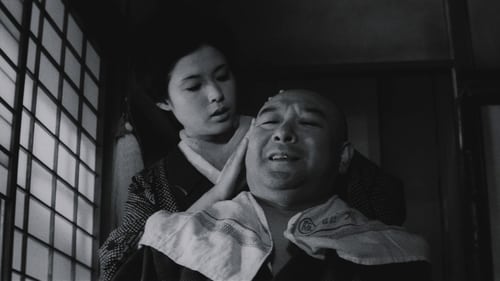
Takemine Matsuyama
Satoko is a mistress by trade or fate: when her master, the silkscreen artist of the Kohoan Temple in Kyoto, dies, she is given to the temple's lascivious head priest Kikuchi. She is drawn to a melancholy young acolyte, Jinen, who has observed the profligacy of his cruel master and Satoko's utter dependence on the man. Jinen is both fascinated and disturbed by Satoko's interest in him; he is similarly caught between loathing of Kikuchi and of the dark circumstances of his birth and his own moral weakness. The story unfolds in a dreamlike manner—a flashback inspired by a now-infamous image on a silkscreen in the souvenir shop at the so-called Temple of the Wild Geese.

Suprabuddha
An Indian prince leaves his world of comfort and riches behind to wander and meditate for six years in search of spiritual enlightenment. Siddartha (Cojoin Hong) turns his back on the old religion when people are starving needlessly and holy rituals include human sacrifices. During his meditations, he is tempted by erotic dancing women, demons, and the evil machinations of his criminal cousin. Devastate to attain the spiritual perfection and become the Buddha. He travels to convert followers by his kindness and wisdom, gaining a multitude of believers when he stops an elephant from crushing a local priest. Buddha of course goes on to become one of the great religious leaders of the world.
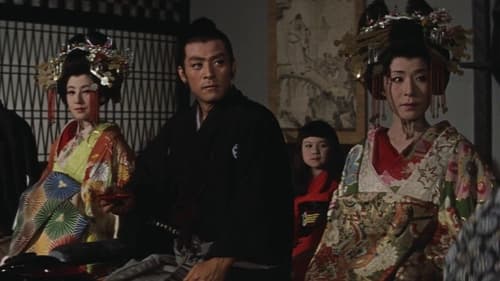
Fujisaku
Basada en la novela THE GREAT BUDDHA PASS (la fuente de SWORD OF DOOM), esta versión de la clásica historia va más acorde con la novela original.
La historia de un asesino a sangre fría, Tsuke Ryunosuke y sus desventuras en Japón durante la década de 1860. Como telón de fondo de la agitación política de la época.
Esta es la primera de la trilogía.

During the 1200's, legendary Buddhist monk Nichiren returns from his studies to lead Japan out of moral crisis and prepare to fight Mongol invaders by creating a new form of Buddhism. He runs afoul of the existing Buddhist sects and their government supporters and is persecuted. Can Nichiren persevere before the Mogol fleet reaches Japanese shores?

One of Japanese folklore's most popular characters is brought to life on the silver screen in this terrific version of legendary Demon slaying Peach Boy.
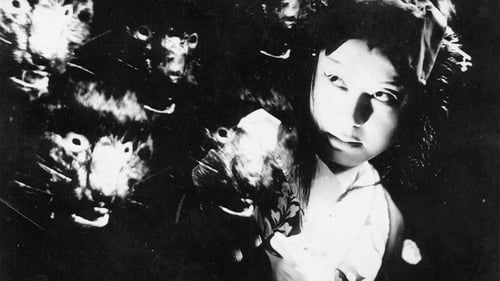
A kabuki actress is murdered. Her pet cat laps its mistress's blood and becomes a demon possessed by the vengeful murder victim.

A Japanese drama featuring the one-eyed, one-armed swordsman
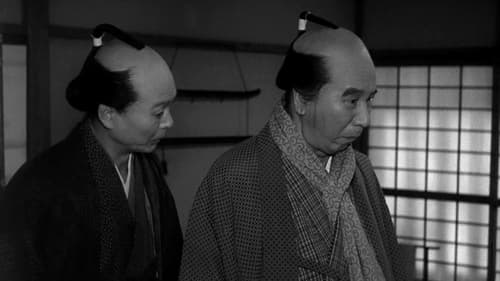
Priest
Adaptación de una obra de teatro (kabuki) del siglo XVII de Chikamatsu Monzaemon. Osan vive en Kioto y está casada con Ishun, un rico y tacaño funcionario. Cuando Osan es acusada falsamente de tener una relación con Mohei, ambos huyen rápidamente de la ciudad. Ishun, por su parte, ordena a sus hombres que los encuentren y los separen para evitar el escándalo.

A woman loses her son through an evil conspiracy and commits suicide. Shortly afterwards a ghost cat begins haunting the conspirators. This is Takako Irie's first bakeneko (ghost cat) movie; it started a Daiei cycle which was very popular at the time in Japan.

Akashi Takenori
Gotō Matabei is the most able and fierce samurai of the Kuroda clan. However, he gradually dislikes the ruthless personality of Kuroda Nagamasa and leaves the clan. Seven years later, he joins Toyotomi Hideyori's army. Filmed in 1945 and released in 1952.

Gensaburo Funaki and Oyuki were childhood friends, but Gensaburo misunderstood that Oyuki was hesitant to get married because he had to feed his father and younger brother. I left the town.

Japanese film.

Kihei

A 1946 Japanese film directed by Keigo Kimura.

According to Donal Richie in The Japanese Film it was meant to do for sumo wrestling what Kurosawa had done for judo in Sanshiro sugata, and that Kurosawa wrote it for Daiei after "drinking up all [his] money" (from his autobiography).

Matsugoro is a poor rickshaw driver whose animated spirit and optimistic demeanor make him a favorite of the town. Matsu helps an injured boy, Toshio, and is hired by the boy's parents.

Famed swordsman Araki Mataemon must face his best friend as they are forced to take opposite sides in a vendetta caused by the murder of a family member.

A story about Ômura Masujirô

The Color Print of Edo is a 1939 black and white Japanese silent film with benshi accompaniment directed by Kazuo Mori. It is a cheerful period drama, sprinkled with comical scenes and tells the story of a loyal and handsome Edo period servant who fights to help his older brother marry the woman he loves. The star of this film Utaemono Ichikawa gained enormous popularity for his portrayal of a cheerful and chivalrous man.
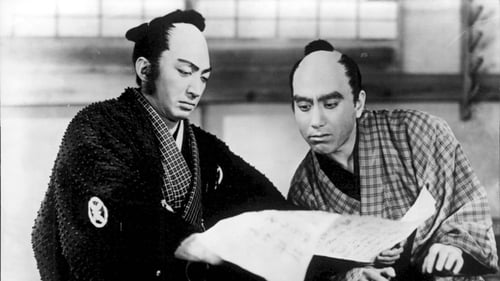
A samurai is ordered by his lord to go to Edo and investigate the truth behind the rumor of a rebellion against him.

Japan's first feature film directed by a female. The film was about the naïve, premature emotions between a young geisha-to-be and a youth destined for Buddhist priesthood; it concluded with their separation.

In old Edo, Kakunojo (Chiezo), a dandy about town, falls in love with Oichi (Isuzu Yamada), whose merchant family is much beyond Kakunojo's status. He nevertheless pursues her until her initial disgust breaks down into fondness, then romantic feelings, inducing her to abandon her fiance on their wedding day.

Okaichi Yanmen
Chiezo Kataoka plays a cowardly samurai, whose honor is on the line when it becomes necessary to avenge the murder of his father. The culminating duel takes place on a night of fireworks.

Sanzō

Yaji and Kita: The Battle of Toba Fushimi is a 1928 Japanese film directed by Tomiyasu Ikeda.[1] This comedy film showcases the acting talent of Denjirō Ōkōchi and acts as a complementary film to Yaji and Kita: Yasuda's Rescue, which is part of the Yaji and Kita series. An 8-minute remnant of the film was released on DVD by Digital Meme with a benshi accompaniment by Midori Sawato. The version in the National Film Center is 23 minutes long.

Naosuke Gonbei
An adaptation of The Ghost of Yotsuya

Yujiro Yasuda
Yaji and Kita: Yasuda's Rescue is a 1927 black and white Japanese silent film directed by Tomiyasu Ikeda.[1] This comedy film showcases the comic talent of Denjiro Okochi, which contrasts markedly with his heroic performance in Oatsurae Jirokichi Koshi. The humorous exchanges with Goro Kawabe, his senior at Nikkatsu, can be priceless, with the expressions and movements of the two goofy characters making for pure, hilarious slapstick comedy. A 15-minute remnant of the film was released on DVD by Digital Meme with benshi accompaniment by Midori Sawato and Ryubi Kato.

For nearly 300 years, Japan had been hermetically sealed to the outside world. When, in that pivotal year of 1854, the American Admiral Perry took the direct approach that the Dutch had been unwilling to take, the ruling Shogun knew that the dynasty was over. As the shogun began to open up to the outside world, the Sonno Joi movement called for this to be reversed...

Directed by Minoru Murata.

Directed by Kiyomatsu Hosoyama.




















